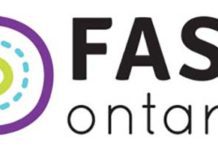FASD is a brain injury that can occur when an unborn baby is exposed to alcohol. It’s a lifelong disorder with effects that include physical, mental, behavioural and learning disabilities. These can vary from mild to severe. It is the leading known cause of preventable developmental disability in Canada. The number of people who have FASD is not known in Canada nor anywhere else in the world. This is because FASD is difficult to diagnose and also because it often goes undiagnosed.
However, based on a study conducted n 2018, an estimated 3% of children in Toronto have FASD which translates to 1.1 Million people in Canada. More recent studies from the US and other Western European countries of first grade students estimate that between 2 to 5% have FASD.
The Ontario Government has announced that they will be providing an additional $3 million annually, in addition to existing funding supports, in a campaign to “raise awareness, better coordinate services and expand and enhance supports for children and families impacted by FASD”, according to Todd Smith, Minister of Children, Community and Social Services. The announcement was made on International FASD Awareness Day on September 9.
“This additional funding is part of our government’s ongoing commitment to support children and youth with special needs,” said Minister Smith. “We heard from advocates, families and caregivers looking for more help with the day-to-day challenges of supporting children with FASD. These initiatives will not only help to end the stigma of this disorder but raise awareness and empower families as they care for loved ones.”
The government’s plan is to use the extra $3 million to hire an additional 26 FASD support workers through special needs coordinating agencies. FASD workers provide information, develop care plans and connect parents to resources, and support networks and diagnostic services.
The funds will also provide for what are called family capacity-building workshops, where families can learn helpful and practical skills to support their children. There will also be training for service providers to educate them about FASD and how they can help families dealing with the disability. This will also provide additional support for families, as well as educating the general public about FASD and what it involves.
Robert More heads a Rural FASD Support Network which has been operating in the region for the past few years. Robert welcomed the additional funds, not just for what they will provide in the way of support, but also because it shows the Ontario Government’s growing awareness of the need for such support.
“These initiatives demonstrate the government’s recognition that additional support is needed to help individuals with FASD and their caregivers reach their true potential. We are particularly excited about their commitment to have a long-term marketing campaign to help bring awareness about FASD, their invitation to all stakeholders particularly in health to collaborate in establishing long-term solutions, the increase in direct support through additional support workers and Indigenous nutrition programs and their direct recognition of the key role support group provide within this collaboration”, Robert told the Times. “It is clear they listened to what stakeholders were saying in the consultation meetings and implemented key, evidence-based measures. We look forward to using these additional measures to continue having a positive impact in the county of Leeds-Grenville”.








